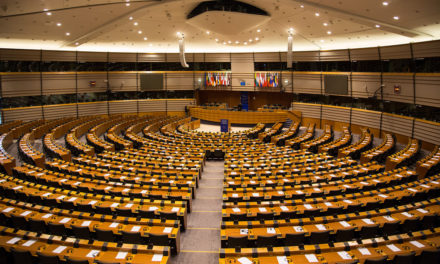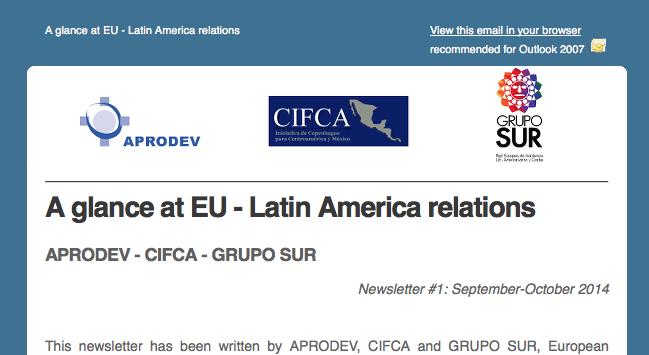On the 22nd of October 2015, international organizations, among them CIFCA, presented in Guatemala City the Report of the Third International Mission to Guatemala on the rigth to food and the situation of human rights defenders. Broederlijk Delen, as member of the network, presented the report on behalf of CIFCA.
During this event, the following press released was made public:
Organizations, networks and social movements publish the long-awaited report on the 3rd International Mission on the Right to Adequate Food and Nutrition in Guatemala, while also addressing the status of human rights defenders in the country. This report proposes a set of recommendations to tackle the structural causes of hunger in Guatemala.
Although Guatemala does have the legal, political and institutional framework to support the fulfilment of the right to adequate food and nutrition, and it is also rich in natural resources and economically strong, structural changes have yet to take place to improve Guatemalans’ living conditions. In terms of poverty, the State of Guatemala is the third worst Latin American country with 54.8% of its population living below the poverty line. And in addition, Guatemala has the highest level of chronic malnutrition worldwide.
According to the mission’s findings, the aid-based approach of Guatemala’s food security programs constitute a principal factor in this situation. The report points out that the lack of coherence between such programs and legislation that recognizes human rights on one hand, and public policies and laws on the use and management of natural, labor and commercial resources on the other hand.
And what’s more, the State enforces a development model based on extracting natural resources for export, which primarily benefits the international business sector. Such a model contradicts the vision of development for indigenous communities, peasants and other rural groups, given that it results in natural resource-grabbing, which limits these communities’ access to, management and control over these resources. “This production model is tailored to agribusiness and large estates. Very high levels of land concentration, coupled with the expansion of large-scale monocultures, have a direct impact on the rights of people and Guatemala’s food sovereignty, with alarming incidences of violence and the violation of human rights. The mission noted these aspects, and it really concerns us,” underlines Gerardo Iglesias, secretary of the IUF Latin American Regional Office (Rel -UITA).
Angélica Castañeda, FIAN International’s coordinator for the program on Latin America, commented on the report and emphasized the following: “As the mission confirmed, the private sector is taking the place of the State in areas related to human rights obligations, such as food assistance, education, health, security, job creation. The private sector also utilizes public space for propaganda and to regulate the population’s access to public services. In some of the cases we visited during the Mission, women and children who belong to groups and communities that are opposed to such business projects suffer from discrimination, exclusion and even threats.”
Furthermore, this report also verified that individuals defending economic, social, cultural or environmental rights (ESCER) – and especially women in these roles – are increasingly suffering from stigmatization, threats, criminalization and violence committed by the State and other actors. Amongst numerous cases, the report also refers to the women from La Puya and their strategy of “women in leadership” who point “in order to comply with this duty [of defending the rights of our community] we have to dedicate less time to our families”.
Related documents:
Press release in English: Press_Release_Presentation_Report_Guatemala-Final
Full report in Spanish: informemdaa_completo
Executive summanry in English: executive summary_mdaa




